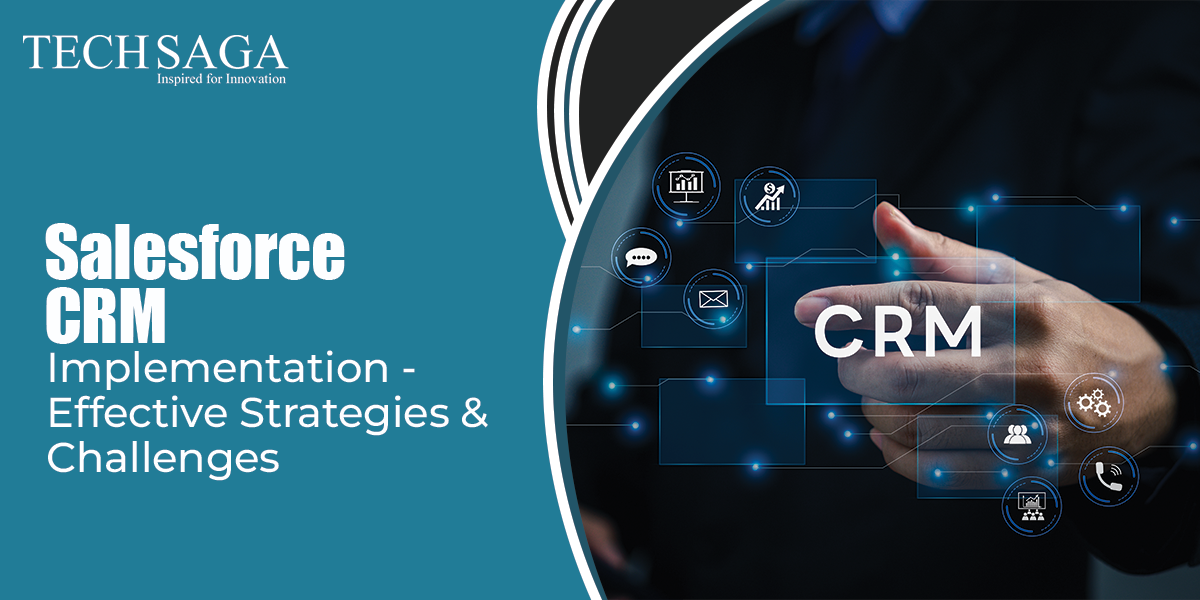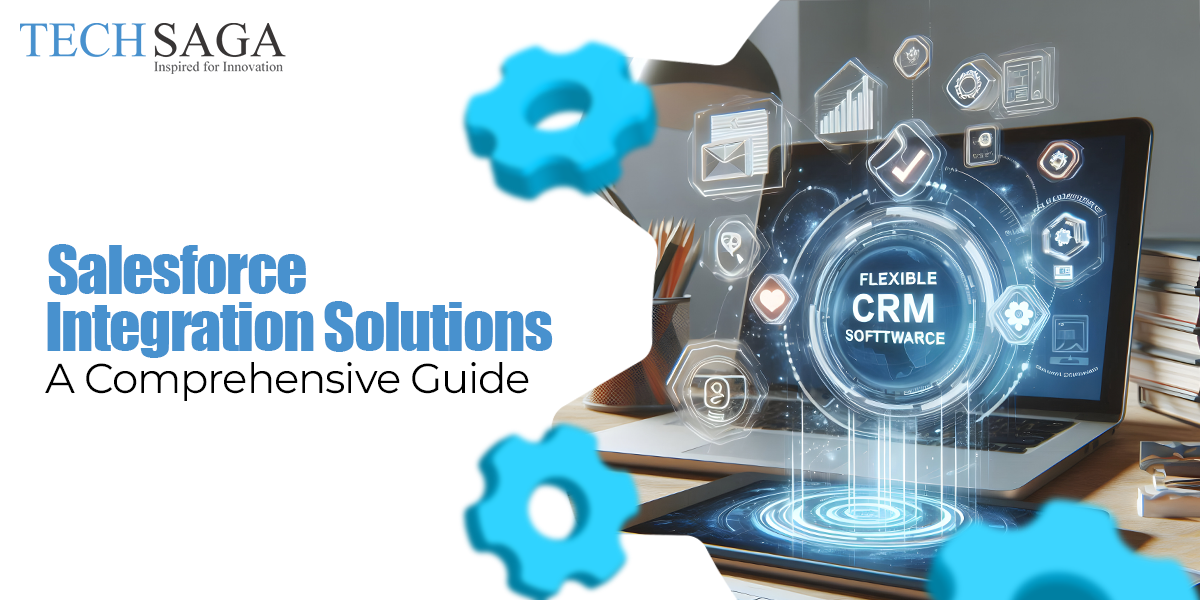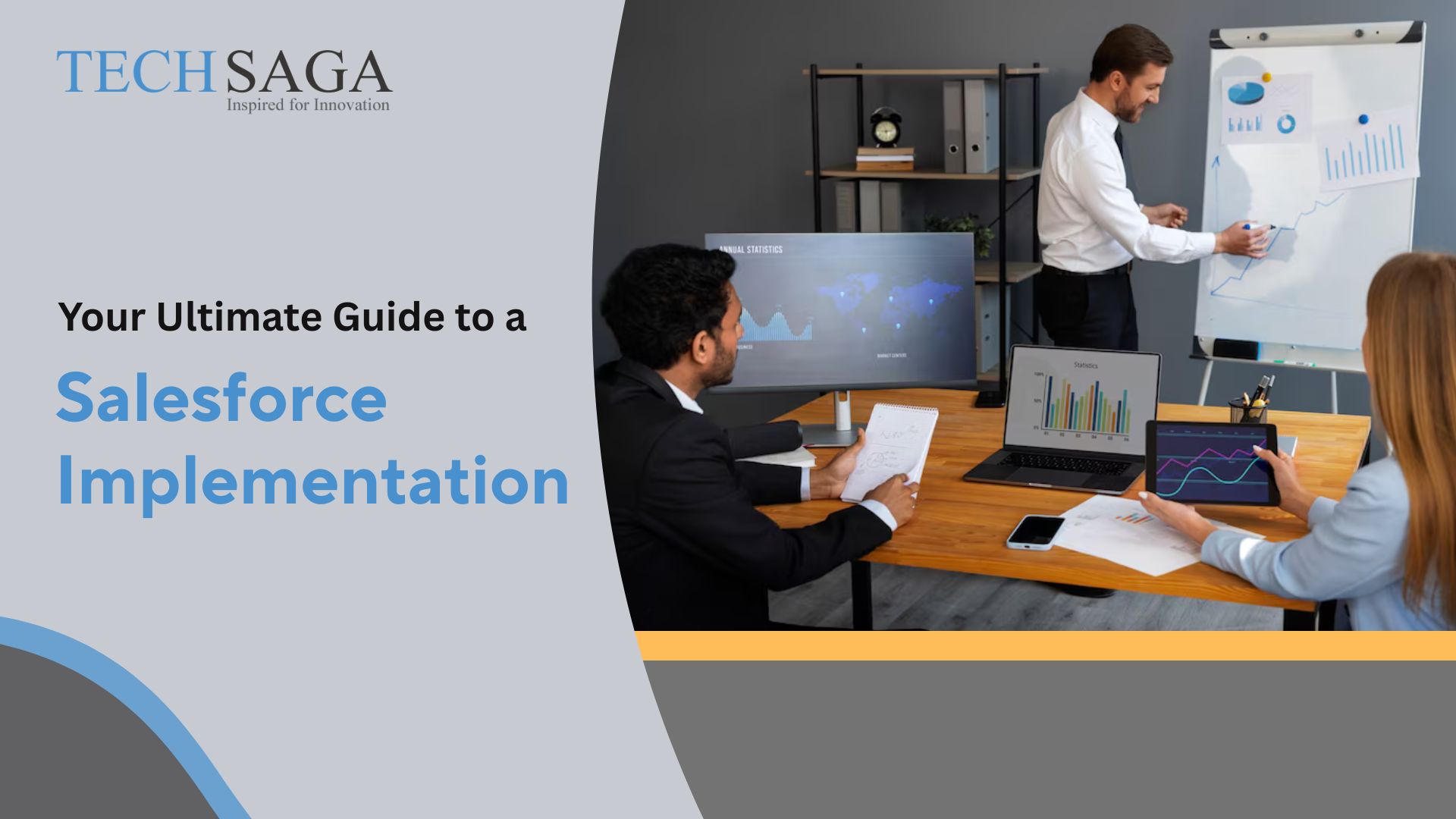Team Techsaga
Gain valuable insights and stay updated with the latest innovations through our engaging blog. Explore trends, technology advancements, and expert opinions to navigate the ever-evolving world of IT.
How To Choose A Salesforce Consulting Partner?
Today, in this digital evolution, companies are increasingly embracing CRM platforms such as Salesforce. This further cuts operational costs, improves customer service, and differentiates itself from the competition. However, sometimes adopting and managing Salesforce is a task. According to the recent report, almost 70% of Salesforce implementations fall short of expectations when executed without the right guidelines. Therefore, choosing the proper Salesforce consultant partner has become a strategic requirement.
Moreover, from small businesses taking their initial steps into Salesforce to enterprises seeking to optimize their present ecosystem, the choice is simply daunting: Salesforce consultant vs developer can be overwhelming.
So, this blog gives an insight into the main steps and factors in choosing a suitable Salesforce consulting partner and more.
Why Do You Need a Salesforce Consultant Partner?
A Salesforce consultant partner brings in the strategic expertise, industry knowledge, and technical know-how needed to make your Salesforce implementation successful. While a Salesforce developer focuses mainly on coding and technical development, a Salesforce consultant goes beyond the surface, identifying business gaps, customizing solutions, managing workflows, and also offering ongoing support.
Key Reasons to Hire a Salesforce Consultant Partner:
- Expertise in Salesforce Architecture and Ecosystem
- Customized Strategy Development
- Data Migration and Integration Support
- User Training and Adoption
- Also, post-Implementation Support and Optimization
Therefore, a good consultant partner helps bridge the gap between your business requirements and the capabilities of Salesforce, eventually ensuring long-term ROI.
Key Factors to Consider When Choosing a Salesforce Consultant Partner
Choosing a Salesforce consultant partner should never be rushed. So, here are the most important aspects to evaluate:
1. Define Your Business Goals
Before you begin your search, identify what you want to achieve through Salesforce. Are you planning a new implementation? Do you need a custom app? Or are you looking to improve adoption and productivity with an existing setup? Thus, clear objectives will help you assess if the partner can meet your requirements.
2. Industry Experience & Specialization
Always look for a partner who has experience working in your industry. Salesforce provides industry-specific solutions—whether it’s healthcare, finance, retail, or education. Further, a consultant who understands your sector will be better equipped to tailor the system to your unique needs.
Pro Tip: Review their Salesforce AppExchange profile to see ratings, certifications, and case studies.
3. Credentials and Certifications Matter
Salesforce offers a wide range of certifications, such as:
- Salesforce Certified Administrator
- Salesforce Certified Advanced Administrator
- Salesforce Certified Platform App Builder
- Salesforce Certified Sales Cloud Consultant
- Salesforce Certified Service Cloud Consultant
Therefore, when evaluating potential partners, look for these certifications, as they validate the partner’s proficiency across various Salesforce products.
Also, check if the company is a Salesforce Registered Consulting Partner, Silver, Gold, or Platinum Partner—these levels are awarded based on expertise and client success.
4. Evaluate the Team Behind the Salesforce Consultant Partner
A partner may have a great sales pitch, but it’s the team that does the work. So, ask:
- How many certified professionals do they have?
- What is their client-to-consultant ratio?
- What is the average project size they handle?
So, a reliable Salesforce consultant partner will introduce you to the actual team working on your project and ensure transparent communication.
5. Client Reviews and Testimonials
Nothing speaks louder than results. Look for:
- Verified AppExchange reviews
- Client testimonials on their website
- Independent case studies
- Also, references you can speak to
Thus, focus on reviews that mention the partner’s problem-solving approach, communication skills, on-time delivery, and post-launch support.
6. Post-Implementation Support and Scalability
Salesforce is not a one-and-done system. It evolves—and so do your business needs. Also, the best Salesforce consultants offer:
- Ongoing training and onboarding support
- Regular health checks and system audits
- Upgrade management with each Salesforce release
- Scalability solutions as your business grows
So, this long-term relationship ensures your system remains efficient and future-proof.
7. Ask the Right Questions
When interviewing a potential Salesforce consultant partner, ask questions such as:
- Can you walk me through a similar project you’ve done?
- How do you handle project management and timelines?
- What’s your approach to change management and user adoption?
- Do you offer customized solutions or just out-of-the-box?
Therefore, their responses will give you insight into their methodology and flexibility.
Compare Proposals and Pricing Transparently
While cost shouldn’t be the only factor, it’s essential to understand what you’re paying for. So, ensure the proposal includes:
- Breakdown of hourly/daily rates
- Scope of services included
- Support and maintenance terms
- Timeline for completion
Therefore, avoid partners with vague pricing or open-ended scopes—they often lead to scope creep and budget overruns.
Salesforce Consultant Partner vs Developer: Know the Difference
Understanding the roles of a Salesforce consultant vs developer is crucial in making the right hire. While their roles may overlap, their core functions are different:
| Role | Key Focus | Ideal For |
| Salesforce Developer | Code-level implementation, customization, Apex/Visualforce development | Companies needing complex customizations or app development |
| Salesforce Consultant | Business process mapping, solution design, strategy, and user training | Organizations needing strategic advice and full lifecycle implementation |
So, for a holistic approach, many organizations hire both. However, when choosing a Salesforce consultant partner, ensure they have a strong team that includes developers for technical tasks.
The Future of Salesforce Consulting: What to Expect in 2025
As AI, automation, and data analytics take center stage in Salesforce’s roadmap, the role of the Salesforce consultant partner is evolving. So, look for consultants who:
- Embrace Einstein AI and predictive analytics
- Offer data migration to Salesforce Data Cloud
- Enable Slack integration for real-time team collaboration
- Also, recommend custom workflows with automation tools
Thus, the best Salesforce consultants stay ahead of the curve and guide you through upcoming innovations.
To Conclude
A successful Salesforce journey starts with choosing the right partner. From understanding your business needs to offering scalable, future-ready solutions, the ideal Salesforce consultant partner will empower your organization to reach its full potential.
So, when looking for the best Salesforce consultant for your business, consider the above mentioned things, moreover take time to research, evaluate and align your goals. In a world where CRM success can define customer loyalty and business growth, partnering with the right expert isn’t just a smart move—it’s a strategic imperative.




